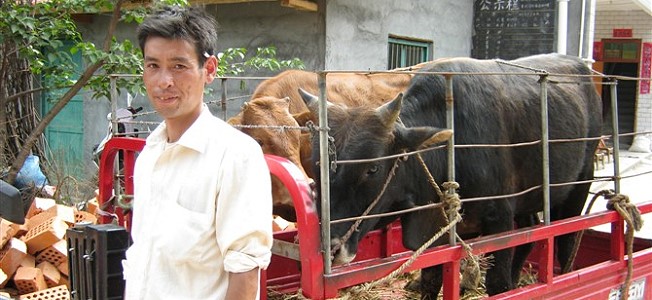Dhading is one of the most impoverished districts in the central region of Nepal. Most of the population is ethnic groups. Nearly 40% of its population lives in very poor and marginalized situation. They are mainly subsistence farmers, surviving by scanty means. There is poor sanitation with over 60% of the population in the district has no access to clean drinking water and very few villagers have toilets. Due to lack of basic health and hygiene knowledge and availability of medical services, child mortality rate is more than 10%. Villagers do not receive suitable medication when they suffered from commonly found diseases as diarrhea, gastritis and typhoid.
Our partner Shanti Nepal provides training and technical support to local clinics through implementing a Community Health and Empowerment programme. In order to improve medical services, trainings are given to local government health workers. Meanwhile, indigenous organisations and local churches are taught how to respond to local needs on primary health care and basic livelihood. Partner also supports small scale drinking water initiatives, antenatal and postnatal checking to pregnant women and teaches villagers about children nutrition and health. For the economic improvement, trainings are given to community development groups on techniques of planting, chicken and goat / sheep raising and handicraft. For improving the health of villagers, the programme actively promotes the importance of sanitation as well as building of toilets. Many villages experienced community transformation because of this programme.
The Kumal community is a good example. Several years ago, only 6 households out of 154 had pit latrines in the village. The level of hygiene and sanitation of the community was low. People practiced open-field defecation therefore wastes laid around and gave off offensive smell in the air. In 2009 partner setup an Environmental Sanitation Coordination Committee to address the environmental health issues of the community. The committee raised villagers’ sanitation awareness through cultural events and audio-visual media. Before long, villagers started to commit in building toilets. Shanti Nepal supported the community by providing materials and technical skill training on toilet building. Villagers then started to dig pits, make walls and collect materials for the toilets. Within 3 months, all 154 households in the community built toilets successfully. Community members have transformed from the poor habit of open-field defecation. Local rules are also developed to keep the village clean. Now the Kumal community can enjoy an improvement in sanitation and a clean environment.
With your support:
HK$250 will subsidise a household to build a toilet;
HK$500 will provide two basic health sessions for mothers’ groups;
HK$1,000 will provide four training sessions on livelihood skills to community groups








